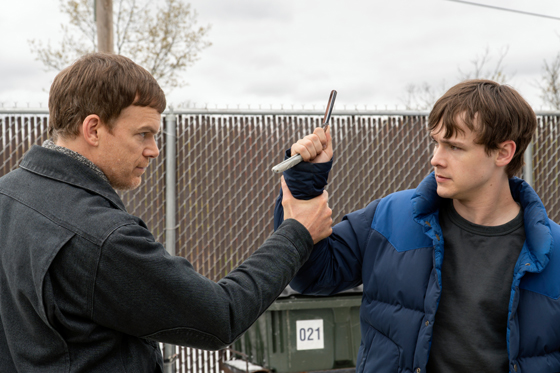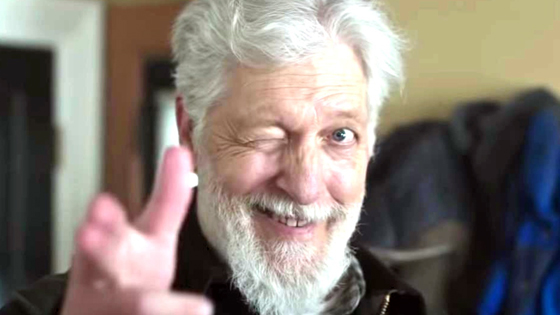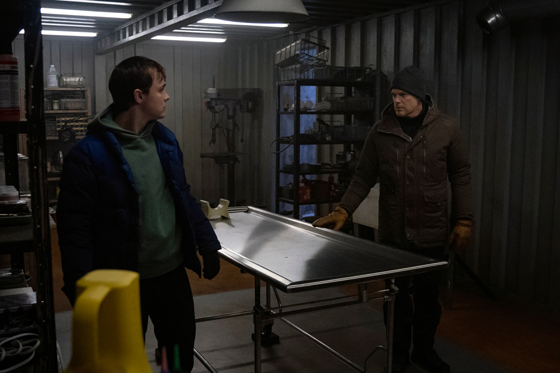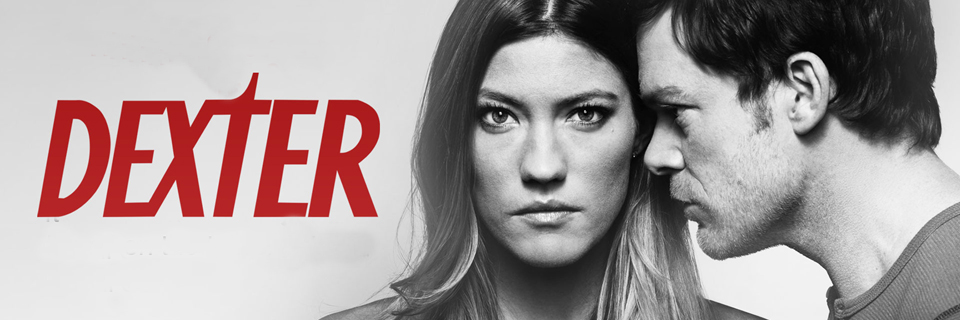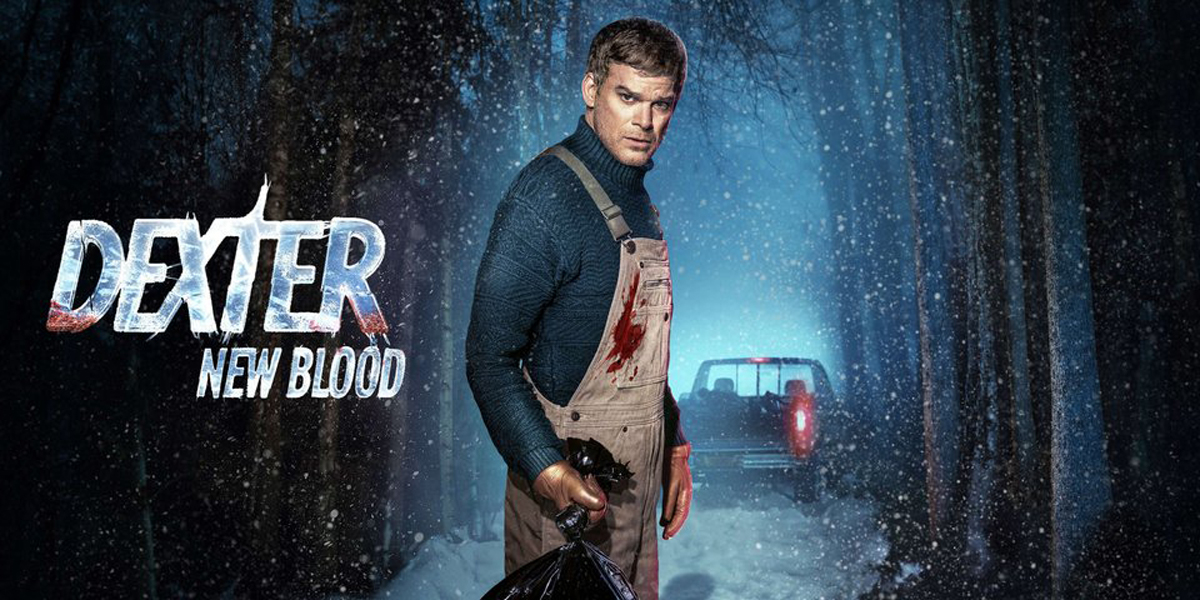
Remember the name Clyde Phillips.
Like many of you, your humble reviewer was sitting in front of the TV on September 22, 2013, tuned into to Showtime to watch Dexter Morgan (Michael C. Hall)—the Miami Metro Homicide blood spatter analyst turned vigilante serial killer—as he ostensibly drove his boat into an oncoming hurricane, only to turn up in a short epilogue as a lumberjack in an Oregonian logging camp. Fade to black. It was as inauspicious an ending to a beloved series as this reviewer’s ever witnessed, even when considering the monumental, dragon-filled fizzle of a certain other hit series on a rival network some five and half years later. After eight hit seasons that featured the highest highs and the lowest lows, Dexter had managed to give us a near-universally reviled series finale.
However, trouble had started brewing on Dexter several seasons prior to that disappointing early-autumn night nine years ago. The first four seasons of the show were truly excellent. They were the embodiment of can’t-miss television that became so by finding a successful formula and then mining it in myriad clever and creative ways to deliver high-octane, compelling, and at times devastating drama. It was typified by fantastic casting and the resultant wonderful performances across the board from an ensemble cast, and the unmerciful weaponizing of the almighty cliffhanger. This period of Dexter defined what became known as “binge-worthy” TV, especially as the show made its way on to Netflix.
And then, as if someone had flipped a switch, the last four seasons of Dexter were an unmitigated mess.
Here’s where we get back to Mr. Phillips. Clyde Phillips was Dexter’s showrunner during those salad days, having led the writer’s room to greater and greater heights that culminated with the show’s fourth and best season as Dexter took on John Lithgow’s unforgettable Trinity Killer. That season’s finale was dramatic. It was tragic. Earth-shattering, even. And, as it turns out, it was series-shattering, too.
When all was said and done, Dexter was teed up to head in a new direction. And with that, Phillips decided the time was right to depart the show.
Although the series continued casting outstanding actors to play opposite Michael C. Hall’s titular protagonist in subsequent seasons, Dexter never found its post-Clyde Phillips footing. The event’s depicted during its fourth season removed what had been the show’s dramatic engine, thereby forcing Dexter’s writers to essentially assemble a new one and to do it without Phillips leading the way. Unfortunately, it would prove too big a challenge to overcome.
By the time Ravenous Monster belched forth from the pits of hell, we were left covering the show’s demise. Beginning with season five and seeing it through to that disappointing fake suicide mission as “Slice of Life” skimmed the waves toward the oncoming CGI hurricane in the waning moments of the series finale, we discussed at length the reasons we thought the show tanked. But the one thing we kept circling back to was the name Clyde Phillips.
Common sense would lead any reasonable person to believe that Dexter was a cautionary tale as television series go. A classic case of squandered potential and an unfulfilled artistic commitment at that. For fans of the show in the wake of its bomb of a finale, it felt like the inability to find closure after losing a loved one.
But you know what, Horror Fans? Cliches exist for a reason. Sometimes empty platitudes suddenly fill up. Sometimes good things really do come to those who wait, and after nearly a decade the impossible happened: Phillips and Hall disclosed that they were both finally willing and able to give Dexter fans the final season we were clamoring for, and that had certainly been merited by the show’s first four seasons if not its atrophied second half.
And thus, on November 7, 2021, Dexter: New Blood debuted on Showtime in a bold attempt to right one of TV’s golden era’s most egregious sins. There are mild spoilers ahead, Horror Fans….
Approximately a decade after Dexter had faked his death off the coast of Miami, we find him living as Jim Lindsay in fictional Iron Lake, New York. When he’s not cashiering at the tiny town’s camping supply/sporting goods shop, “Jim” lives alone in a cabin in the woods. He also happens to date the town’s chief of police, Angela Bishop (Julia Jones). In classic voice-over form, Dexter tells us that he’s managed to suppress his “Dark Passenger”—his serial killing urges—since he’d left Miami behind.
But we recognize within the first few minutes of the premiere that this town is full of people who fit Dexter’s code, i.e., murderers and rapists who go unpunished. According to the code, these people are okay to butcher. One of them, Matt Caldwell (Steve M. Robertson), is the douchebag son of local business owner Kurt Caldwell (Clancy Brown). Dexter learns that Matt once drove his speed boat into another boat, killing five people…and got away with it. Uh-oh.
After another encounter with Matt Caldwell, “Jim” finally fails to fend off his reemerging Dark Passenger, killing Matt and breaking Dexter’s near-decade long no-kill streak. As things are spinning out of control, Dexter’s estranged son Harrison (Jack Alcott) from his past life suddenly shows up, throwing everything into chaos.
Fans of the original series know all about Harrison’s tragic and traumatic early life and when it looks like he’s shown up in Iron Lake with a Dark Passenger of his own, Dexter sees an opportunity…even if Dexter’s hallucinatory dead sister Deb (Jennifer Carpenter)—with whom he argues frequently—sees it differently. Double uh-oh.
As Dexter struggles to maintain “Jim’s” identity while also reconciling with Harrison as Dexter, a shifty Kurt Caldwell tries to take Harrison under his wing while behaving suspiciously about the “disappearance” of his own son. Dexter suspects that Kurt is a bad guy. And soon we realize that Dexter’s right on the money as Kurt is revealed to be a serial killer preying on vulnerable local young women.
Just as Harrison’s Dark Passenger makes itself known and Kurt schemes to manipulate him, internet sensation/true crime podcaster Molly Park (Jamie Chung) shows up and offers to share her theories about the area’s missing girls with Angela. She also has a few theories on the Bay Harbor Butcher case from Miami about ten years back, incidentally. If there was ever an appropriate time to write the words: “triple uh-oh,” it’s now, Horror Fans.
From here we’re hurtled toward the inevitable fulfillment of Dexter Morgan’s arc as he and Harrison must find closure, however that arrives. In the meantime, will Dexter get away with killing Matt Caldwell? Will his true identity be found out? Can he put an end to Kurt Caldwell’s 25-year reign of terror? Can he help Harrison mold his Dark Passenger? And what of his relationship with Angela?
Dexter: New Blood is a successful return to form. It doesn’t quite meet the highs of the original run (how could it?), but it’s a huge improvement over its final four seasons. That begs the question: Why? Is it really as simple as Clyde Phillips coming back to help finish what he’d started? Well, yes…mostly.
It’s important to remember that as impressive as well-written TV can be, this stuff ain’t rocket science. These excerpts from Ravenous Monster’s reviews of seasons six and eight, respectively, get at the simple recipe for success—that aforementioned “dramatic engine”—that Clyde Phillips brought to the series early and brought back to New Blood:
“The series thrived on portraying Dexter’s attempt to reconcile his dark side with his attempt to function in a family unit with Rita (Julie Benz) and her children, and later their own child. That inherently tense and dramatic dynamic is the successful thrust of the first four seasons and it’s what’s been sorely missing ever since.”
And…
“The end of Season Four marked the ‘beginning of the end.’ Dexter’s home life with Rita and the kids juxtaposed against his life as a prolific serial murderer was what fueled the narrative. When the Trinity Killer murdered Rita, it created a huge void that required incredible skill in the writer’s room to overcome. But unfortunately, the series’ show runner left the series after season four and subsequently left Dexter without someone to adequately guide the ship over the course of its final four seasons.”
That’s basically it: Dexter the family man vs. Dexter the serial killer. When the family dynamic goes away, the show stops working. Phillips brought this simple formula back to the Dexter, creatively plugging in new variables where they belong: Angela for Rita, Iron Lake PD for Miami Metro Homicide, Deb’s ghost for Harry’s ghost, teenaged Harrison for baby Harrison and so on.
In some respects, New Blood does things better than the original run did. For example, our protagonist is a psychopath and a prolific murderer. He’s both sick and immoral, code or not. So, making us root for such a man is a pretty tough ask. It’s also a bit of a precarious context in which to write. The original run largely handled it by avoiding the homicidal gorilla in the room. Conversely, New Blood leans into the conundrum.
When large revelations happen, we expect Dexter to react a certain way—because he’s our protagonist—however, the script allows for Hall to drop performative gems, clearly playing these beats in such a way that emphasizes the subtextual reality that Dexter’s primary concerns are not that of a hero, but rather those of a sick man who lacks any empathy and who’s mostly guided by his code’s primary objective: Don’t get caught butchering people. The results are uncomfortable and at times bone chilling. And all along, Michael C. Hall delivers what’s arguably his finest performance.
New Blood is not without its faults. Most of them are the byproducts of having a mere ten episodes to wrap up eight seasons worth of flawed legacy storytelling and reconcile that with eight more years of fans’ frustrations and unrealistic expectations. So, there were times during the season that required foregoing setting up some major beats with well-developed, organic storytelling and instead relied on cheap tricks to get us where we needed to be sooner than is ideal but on a timeline necessitated by the limited number of episodes.
The most egregious example happens when Jim Lindsay gets outed as Dexter Morgan. This needed to happen relatively early in the season, but without any time to set up a plausible scenario, we were given three wildly implausible coincidences happening simultaneously to get us there, instead. On a positive note, one of these plot contrivances comes in the form of fan service by way of Dexter’s former coworker at Miami Metro, Angel Batista (David Zayas) in a brief cameo that’s largely the lynchpin for unravelling Jim’s/Dexter’s ruse.
Unsurprisingly, the finale’s conclusion has polarized some fans. Shocking, I know. Without giving too much away, it’s worth mentioning a few things about that. Centuries of storytelling inform us that Dexter’s character arc would resolve exactly the way it did. It was an inevitability. Heroes ride off into the sunset after saving the day. While Dexter Morgan is this story’s protagonist, he’s most definitely not its hero, though it’s easy to conflate those ideas. And no matter what happens going forward it’s important to remember that this series was originally conceived as a one-and-done chance to redo Dexter’s FINAL season. For what it’s worth, this reviewer hopes it stays that way.
Dexter: New Blood accomplished its goal. Fans got a well-crafted final season to a beloved series, one that seemed like a total pipe dream not too long ago. As a result, we got true closure. No ambiguity. No CGI hurricanes. No irreconcilable disappointment. Clyde Phillips and company seem to have accomplished the impossible by simply stripping away the nonsense and getting back to basics.


